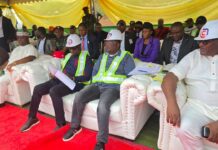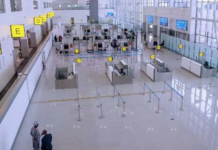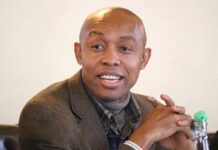Edu cries out, 16m Nigerians grappling with crises; ministry needs support to help them
By Jeph Ajobaju, Chief Copy Editor
Some 16 million Nigerians are grappling with humanitarian crises and they need intervention from both public and private sectors to survive, Humanitarian Affairs and Poverty Alleviation Minister Betta Edu has disclosed.
She said the number is apart from 46,000 refugees from Cameroon who are mostly in Cross River, Taraba, Benue, and other border states.
Edu reiterated when officials of the Bill and Melinda Gates Foundation (BMGF) visited her in Abuja that President Bola Tinubu is committed to the Sustainable Development Goals (SDGs) which seek to lift people out of poverty by 2030.
She solicited the help of the BMGF to achieve the goals, saying her ministry needs technical help to draw a baseline, set agenda and devise programmes and projects to really lift people out of poverty while addressing humanitarian needs.
Her words: “We have a huge task on our hands. As we speak now over 16 million Nigerians are affected by humanitarian crises, either man-made or natural disasters. Of course, security issues, pockets of unrest in different areas have not made this any better.
“Other natural disasters like flooding, which we are presently going through, and the opening of a dam in another country [Cameroon] which will have its own effect on Nigeria, is another call for attention to ensure that people are catered for.
“And then, we have these unrests in all the neighboring countries – in Cameroon, in the southern part of Cameroon that have over 46,000 refugees coming into Nigeria.
“There are over 36,000 in Cross River. We have a whole lot into Taraba and Benue, along that border.
“We are dealing with other crises in Niger, having people coming to Sokoto, Kano, Katsina and all of that.
“This is an addition to Nigerians that are refugees in this country and the migrants that were trying to go through Niger and Libya and got stocked around the border.
“So it’s a whole lot as it concerns the humanitarian crises and what we need to deal with as a ministry.
“But now the bigger one is here, which is poverty alleviation.
“We have from the last statistics done by the Bureau of Statistics that about 133 million Nigerians are poor, that is in multi-dimensional poverty, and then about 70 million of these people are extremely poor. So, they are basically living below $1.95 cent per day.”
_________________________________________________________________
Related articles:
World Bank warns, Nigeria’s economy too weak to tackle poverty
PWD bridge sweepers appeal to Sanwo-Olu to raise their pay to cope with hardship
NLC and employers scoff at 4.1% unemployment figure as fraudulent
__________________________________________________________________
Engaging with BMGF
Edu explained she finds it necessary to engage with the BMGF to set the foundational stage because of the new mandate of the Humanitarian Affairs and Poverty Alleviation Ministry, according to Vanguard.
“Of course, you know that before this time, the ministry used to be the Ministry for Humanitarian Affairs, Disaster Management, and Social Development.
“However, the President is refocusing the ministry to really address some key pillars or agendas of his administration. He has an eight-point agenda and topmost of it is the eradication of poverty.
“That is why the ministry was changed from Ministry of Humanitarian Affairs, Disaster Management and Social Development to Ministry of Humanitarian Affairs and Poverty Alleviation.
“This is to meet SDG Goal 1, Goal 2 and several other cross-cutting SDG goals. Of course, it goes without saying that the SDGs are also one of the parastatals under the ministry.
“You have about seven others that are concerned with different aspects of interventions from the Refugee and Migrant Commission to NAPTIP involved in the prohibition of [human] trafficking, of course to SDGs and then Senior Citizens and Agency for the Disabled.
“The President is committed to SDGs [meant to raise] these people out of poverty by 2030, and we need your help. That is a lot of work and I just thought it was important to get you to the table at the foundational stage.
“First, we would need a lot of technical help. Technical help to see that we can draw a baseline, set the agenda and come up with programmes and projects that can be implemented to really lift people out of poverty while addressing the humanitarian needs.
“So, these are areas in which we are going to work and I believe very strongly that Bill and Melinda Gates Foundation has a lot to do with management of humanitarian crises and of course, poverty alleviation.”














